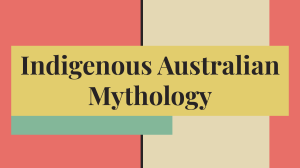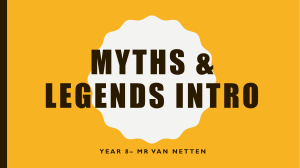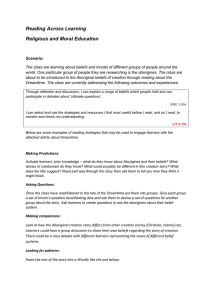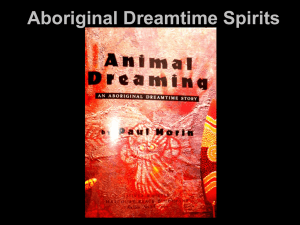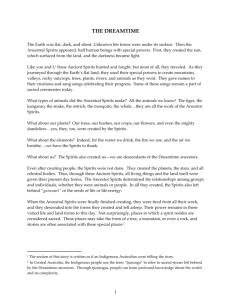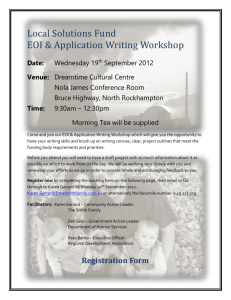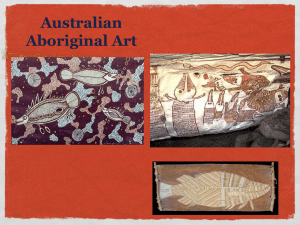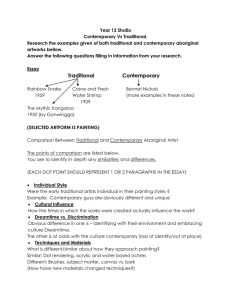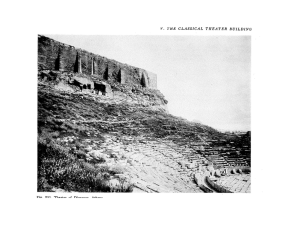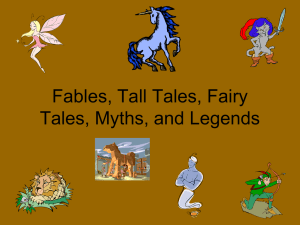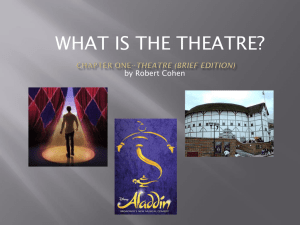Aboriginal Dreamtime PowerPoint
advertisement
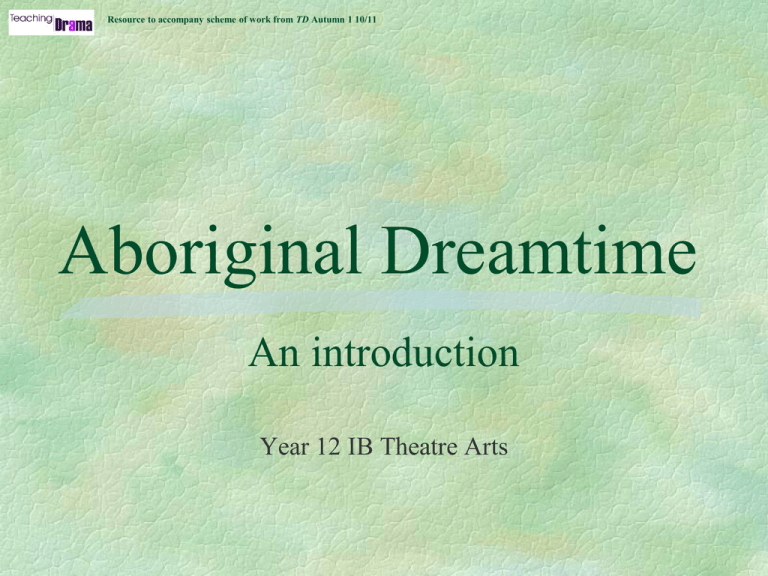
Resource to accompany scheme of work from TD Autumn 1 10/11 Aboriginal Dreamtime An introduction Year 12 IB Theatre Arts Defining the ‘dreamtime’ • • • • • • • All things began with it It continues to co-exist with our ‘now’ time It is all things past, present and future It is sacred It is the ‘time before time’ It is the ‘time outside time’ It is the ‘time of creation of all things’ What it means to indigenous people • • • • • • • Belief system Moral teaching Spiritual code Making sense of the world They belong to the dreamtime History and tradition Identity – often linked to animals and plants The connection with the land One belief was that, before animals, humans and plants were created, there were souls who knew that they would become physical, but did not know when. When the time was right, they all said: ‘we will do our very best to try to help the one that takes care of us all.’ Then they all became animals or plants. The last soul became the human. That is why aboriginals all respect the environment and want to be at one with nature because they are their friends. The purpose of dreamtime stories • To explain the world – how the birds got their colour; how the tortoise lost its tale; how the black snake became poisonous. • To teach – where the water holes are, how to navigate using the stars. • To connect with their totemic ancestors Links to western culture • • • • • Bible stories Aesop’s fables Fairy tales Grimm tales Creationism Fundamental differences • The myths are ‘real’ • Dreams and ‘real life’ co-exist Performance elements • • • • • • • Initiation/ritual Meme – passing down Motif Songs/soundscape Dances Poetry Paintings and sculpture Dreamtime as theatre • • • • • Total theatre – music, image, word Storytelling tradition Evolves as art evolves Communal Social function
